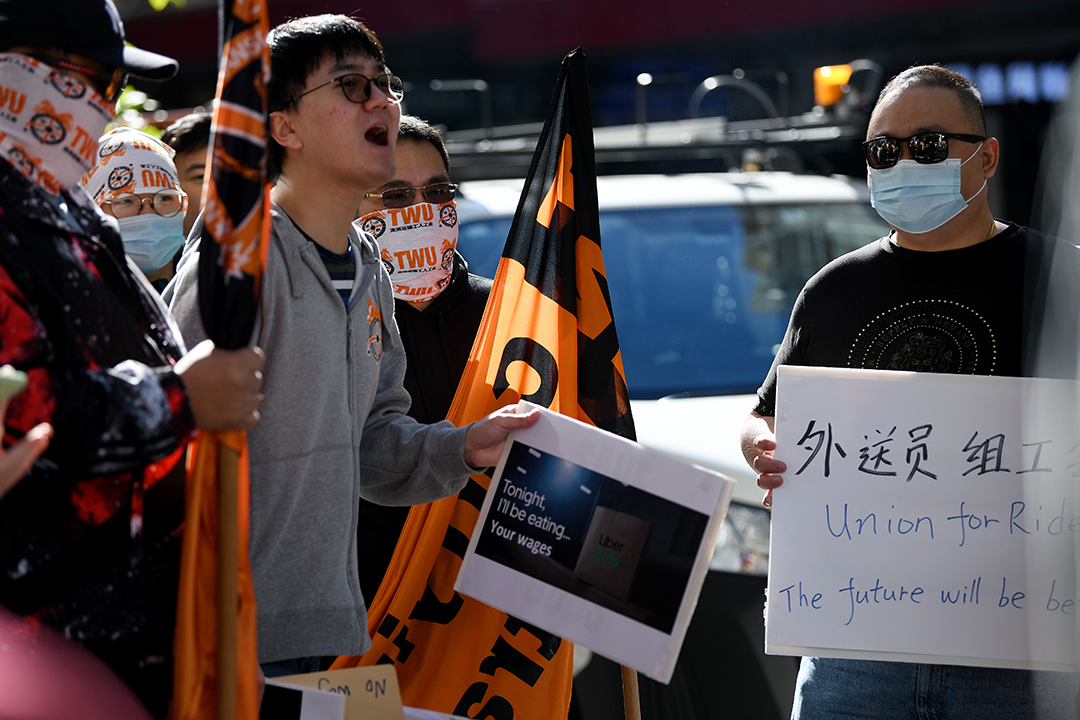

The Fair Work Commission has given the company Svitzer — not Switzer! — a kick in the pants for escalating an industrial dispute with its union, which it said was “economy damaging”. And this could be a prelude to what could be a wage war that will hot up in 2023.
This dispute, which the AFR says has been a three-year battle, saw the FWC suspend any company or union action for six months, following Svitzer’s plan to lockout 600 port workers because of unions upping industrial action in pursuit of their claims for better pay and not losing entitlements.
The AFR’s Martin Gruzman explained the implications of the company’s actions this way: “The lockout would have stopped container ships coming in or out of 17 ports around the country and sparked FWC hearings to suspend or terminate the action due to the significant damage to the economy – the latter which would have set parties on a path to arbitrate outstanding claims.”
The Fair Work Commission thinks a lockout to terminate industrial action is unacceptable and bad for the economy.
This comes as The Australian today looks at the brewing battle between bosses and the Albanese Government, armed with its new industrial relations bill, which has employer groups and business leaders hopping mad and arguably, scared.
This is how The Oz portrayed the situation in today’s paper: “Anthony Albanese’s relationship with the private sector is disintegrating as business wages open warfare against plans to push through major workplace relations changes before Christmas and senior cabinet ministers publicly attack Reserve Bank governor Philip Lowe.”
But wait, there’s more and it gets more provocative. “Labor MPs on Wednesday rejected Dr Lowe’s advice to make workplaces more flexible and mocked Qantas chief executive Alan Joyce, with NSW senator Tony Sheldon accusing the national carrier of “mongrel corporate gorillaship” over its treatment of workers,” The Australian added.
The threat from the IR bill is such that employers are rushing to defend Dr Lowe, whose Reserve Bank has put a lot of businesses under a fair bit of interest rate and profit pressure. “Industry leaders and economists hit back against criticism of Dr Lowe, who challenged the government in a speech on Tuesday night to get the budget under control, make workplaces more productive and avoid a “painful” recession by increasing wages to keep pace with inflation,” The Australian revealed.
All this comes as the economic outlook for 2023 raises questions about whether the business sector will be able to cope with the demands for higher wages by many unions, which have been understandably driven by a surge in the cost of living.
Many economies are poised to go into recession and we are expected to have a notable slowdown, which in business terms means less sales, lower profits and less job creation and in fact, job losses are forecasted. Wage rises not linked to profits and productivity will mean more job losses, so these future wage rises could be good for employees who keep their jobs.
One thing I learnt in my early days of studying economics at the UNSW is that unions represent the employed not the unemployed. And if wage demands next year become excessive, unions could see many of its members lose their jobs.
The case for bosses hasn’t been helped by the 11% profit surge for Qantas, which was revealed yesterday, with its share price hitting levels not seen since the Coronavirus came to town!
However, not all businesses are flying high like Qantas and that’s the problem with the IR bill as it opts for ‘across the board’ pay rises for workers, no matter the situation of the business paying those wages.
And if this battle between employers and the unions supported by Labor is to be contained and a war breaks out, then this too will be damaging for the economy.
I wonder if the Fair Work Commission will get involved in the IR bill battle, which sees independent senator (ex-Wallaby) David Pocock calling for more time to reform the bill, which Albo wants passed by Parliament before the Christmas break.
Strike action for higher pay will always cause damage to an economy in the short term, as wage rises force up costs but if it leads to more demand for goods and services and productivity is rising, then pay hikes can be absorbed.
Right now, we have oil prices high thanks to a war in Ukraine, China looks set to go back into lockdown, which is not good for inflation, which in turn is not good for rising interest rates and the cost of living. The global economy is set to contract in 2023 and we are a country that exports to the world, so a wage war next year is something to be avoided. But I don’t think that will happen.